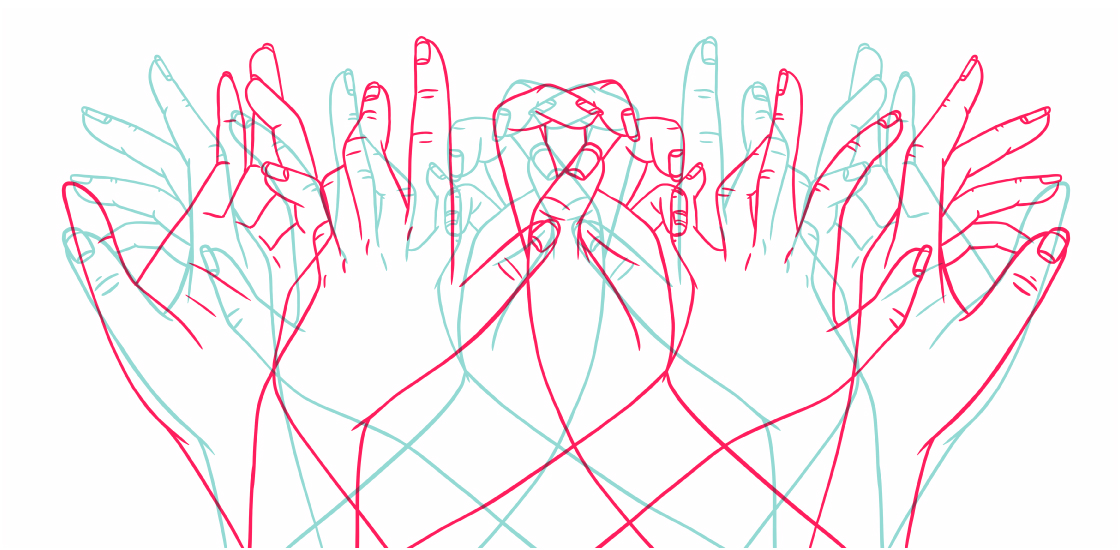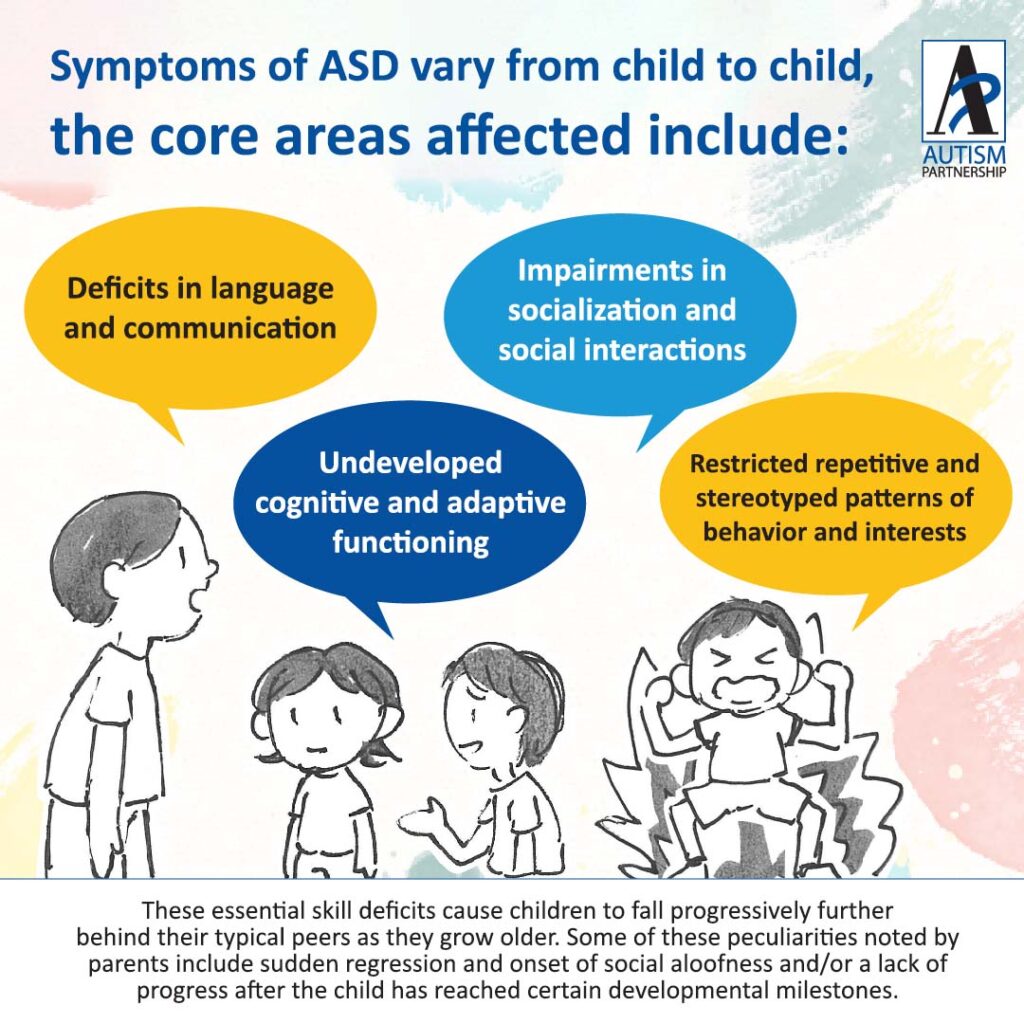Why routines matter help children with autism—according to an Autism Therapist’s advice
Why routines matter help children with autism—according to an Autism Therapist’s advice
Blog Article
Trick Symptoms And Signs to Acknowledge in Individuals With Behavior Autism
When you come across somebody with behavioral autism, identifying vital signs and symptoms is important. Furthermore, sensory sensitivities can lead to frustrating experiences.
Challenges in Social Communications
When you interact with somebody on the autism spectrum, you may notice they deal with social signs and interaction. These obstacles can make social communications feel overwhelming for them. You might see them staying clear of eye contact or standing also close or too away during discussions, which can develop misconceptions. They might not select up on body language or faces, making it harder for them to evaluate just how others are feeling.
In addition, you might find that they like regimens and familiar settings, which can restrict their determination to participate in new social scenarios. They may speak concerning their rate of interests in terrific information without discovering if you're interested when they do engage. This can bring about prejudiced conversations that leave you feeling separated. Comprehending these challenges can aid you approach communications with empathy and perseverance, fostering an extra comfy atmosphere for both of you.
Problem With Verbal and Non-Verbal Interaction

Non-verbal communication can be also a lot more difficult. You might see an absence of eye get in touch with or minimal usage of motions, which can make communications really feel uncomfortable. Facial expressions might not constantly line up with the discussion, resulting in confusion concerning their feelings. Identifying these signs is essential, as it assists you far better assistance and involve with individuals on the autism range. By comprehending their interaction challenges, you can promote more significant links and supply a more encouraging atmosphere.
Repetitive Habits and Routines
Interaction obstacles usually come with other signs of autism, such as repeated actions and a strong preference for routines. You may observe that people with autism typically take part in specific, repeated actions, like hand-flapping, rocking, or duplicating expressions. These behaviors can give comfort and a feeling of control in a frequently overwhelming world.
When they adhere to a structured routine,Routines are just as crucial; several people prosper. You may find that changes to these regimens can bring about considerable distress. If they have a daily routine of consuming breakfast at a specific time or complying with a certain course to college, any kind of disruption can cause anxiousness.
Recognizing these patterns assists you recognize their habits and supply support. By fitting their need for regular and enabling repetitive actions, you can produce a much more comfortable setting that reduces their difficulties.
Sensory Sensitivities

Usual Sensory Triggers
Sensory sensitivities can considerably affect every day life for individuals with autism, as certain stimuli typically activate overwhelming reactions. Common sensory triggers consist of loud sounds, brilliant lights, and solid scents. You might notice that unexpected noises, like alarms or alarms, trigger anxiousness or distress. In a similar way, fluorescent lighting in stores can feel severe and uneasy. Appearances can likewise play a substantial function; harsh materials or certain food textures might be excruciating for you. In addition, crowded locations can bewilder your senses, making it tough to unwind or concentrate. Recognizing these triggers can assist you handle your environment much better. By recognizing what affects you, you can take actions to decrease discomfort and boost your daily experiences.
Behavioral Responses Explained
Recognizing your behavioral feedbacks to sensory sensitivities is essential, as they commonly reveal just how you engage with the world. You could notice that certain noises, lights, or structures overwhelm you, leading to stress and anxiety or pain. When encountered with these stimuli, you could take out, cover your ears, and even react aggressively. These actions aren't just peculiarities; they're your way of handling overstimulation. You may likewise find yourself seeking certain sensory experiences, like deep stress or silent atmospheres, to assist ground yourself. Recognizing these patterns aids you understand your demands far better and can direct just how you connect them to others. By recognizing your sensory sensitivities, you can function towards creating an environment that really feels more comfortable and convenient for you.
Coping Methods Summary
Identifying your sensory sensitivities is simply the very first step; currently it's time to explore coping techniques that can assist you take care of those experiences successfully. Begin by producing a sensory toolkit customized to your demands. This can include noise-canceling headphones, fidget toys, or soothing aromas. Developing an organized routine can additionally provide predictability, lowering anxiousness around sensory overload. When you feel overwhelmed, take breaks in a silent area to collect yourself. Practicing mindfulness strategies like deep breathing can assist ground you in the minute. Additionally, connect your requirements with those around you; having encouraging family and friends straight from the source can make a substantial distinction. Remember, finding what works best for you might take time, so be patient and open to attempting brand-new methods.
Restricted Passions and Emphasis
While many individuals establish a wide variety of interests, those with autism typically show limited rate of interests and an extreme concentrate on particular subjects. You could see that someone with autism can invest hours delving into their favorite topic, whether it's a particular kind of train, a certain film, or a scientific principle. This extreme emphasis isn't simply a hobby; it can end up being a main part of their identification and social communications.
You may locate that conversations revolve around these passions, and they may have a hard time to take part in wider subjects. For them, these focused passions offer comfort and a sense of proficiency. While it's vital to motivate exploration of new topics, appreciating their interests is similarly necessary. By understanding and recognizing these limited rate of interests, you can foster an encouraging atmosphere where they really feel valued and understood, enabling even more purposeful connections and interactions.
Psychological Regulation Difficulties
Individuals with autism frequently encounter obstacles in psychological regulation, which can be influenced by their extreme concentrate on specific rate of interests. You could notice that when a person is deeply engaged in a favored activity, they can experience solid emotions, whether excitement or disappointment. When things do not go as prepared., this intensity in some cases makes it hard for them to change gears or manage their sensations - Aba Therapist.

Variability in Developmental Turning Points
When it comes to developing turning points, click site you'll observe that people with autism typically show a broad variety of irregularity. You might see a child excel in language skills but battle with social communications.
It's important to identify that each person's journey is special. Some may create complicated skills early, only to face obstacles later. Others may take longer to achieve standard turning points yet after that prosper in details locations. Observing these patterns can assist you recognize their strengths and requires better.
Frequently Asked Concerns
Just How Is Autism Detected in Kid and Adults?
To detect autism in kids and adults, specialists examine behavior, interaction abilities, and social communications. If an individual meets the criteria for autism range problem., they often use standardized examinations, interviews, and monitorings to establish.
Are There Different Sorts Of Autism Range Disorders?
Yes, there are different sorts of autism spectrum problems, consisting of Asperger's disorder and prevalent developing disorder-not otherwise defined. Each type varies in severity and features, so understanding these distinctions can assist you much better support people with autism.
What Therapies Work for People With Autism?
When considering effective treatments for people with autism, you'll locate options like Applied Actions Analysis, speech treatment, and occupational treatment. Each approach can help boost communication, social abilities, and daily operating customized to private demands.
Can Individuals With Autism Lead Independent Lives?
Yes, people with autism can lead independent lives. With the right assistance, abilities training, and sources, you can help them create self-sufficiency, take care of everyday tasks, and flourish in different atmospheres, promoting their self-reliance.
Just How Can Households Support Loved Ones With Autism?
You can support your loved ones with autism by developing a structured atmosphere, motivating their interests, practicing persistence, promoting communication, and promoting social abilities. Commemorate their accomplishments, no issue just how little, and develop a supportive area.
Although numerous people on the autism spectrum can recognize and utilize language, they commonly deal with substantial obstacles with both non-verbal and verbal communication. Acknowledging these indicators is essential, as it helps you far better support and involve with visit site individuals on the autism range. You could see that people with autism often engage in certain, repetitive activities, like hand-flapping, rocking, or duplicating expressions.Sensory sensitivities can significantly impact daily life for individuals with autism, as specific stimulations typically set off overwhelming reactions.When it comes to developing turning points, you'll observe that people with autism frequently show a large variety of irregularity.
Report this page